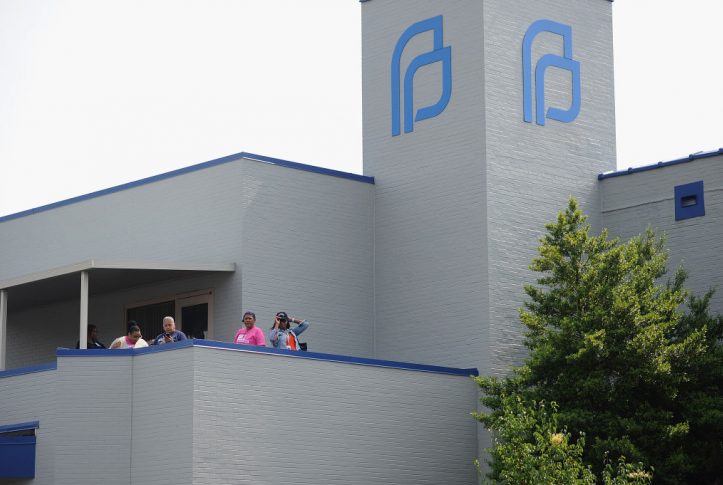Family planning services allow women to make their own choices about whether and when to have children. These services, which are critical to ensuring gender and racial equity and reproductive justice, are not limited to contraception, pregnancy testing, and fertility services. For many low-income women, particularly those living in states that have not expanded Medicaid, family planning coverage provides access to important preventive health services, too. Of the 9.3 million women who received publicly funded contraceptive services in 2016, approximately half also received testing for a sexually transmitted infection, nearly 2 million were screened for cervical cancer, and almost 40,000 received an HPV vaccination.
Despite the importance of these services, actions in recent years at the federal level and in some states have undercut access to family planning services, particularly for low-income women whose services are funded largely through Medicaid and the federal Title X grant program for family planning providers. Consistent with President Biden’s commitment to women’s “sexual and reproductive health and rights,” the administration has proposed to unwind the Trump era “gag rule” in the Title X program, which sharply reduced women’s access to family planning services by cutting off grant funding for any providers that offered referrals for abortion services or maintained any physical or financial integration with providers doing so. It remains to be seen, however, how the Biden administration will address similar restrictions that some states have imposed in their Medicaid programs, as described below., as described below.
State Actions That Restrict Access to Medicaid-Financed Family Planning Services
Medicaid, the largest source of public funding for family planning services, has long been barred by the Hyde Amendment from covering abortion, except in very limited circumstances. But longstanding federal law requires states to cover family planning services in their basic Medicaid programs and allows states to provide Medicaid-financed “family planning–only” coverage for low-income individuals who do not qualify for full Medicaid. Under both types of coverage, the federal “free choice” provision guarantees Medicaid enrollees the right to receive family planning services from any willing and qualified provider.1
Notwithstanding this right, some states have excluded providers that offer abortion services from participating in Medicaid, even though these providers are sometimes the largest, or only, local provider of comprehensive family planning services. By seeking to exclude providers that offer abortions outside the Medicaid program, these actions jeopardize women’s access to essential family planning and preventive health services within Medicaid. States have pursued three primary strategies to exclude providers, emboldened by supportive actions from the Trump administration.
Some states have categorically barred providers from offering Medicaid services if they also provide abortions to the general public. Thus far, courts have consistently blocked these efforts, concluding that it violates the free-choice provision for a state to exclude providers for reasons unrelated to professional competence. Even so, officials in other states — those not subject to the courts that have ruled on the question — continue to push for policies that would exclude all abortion providers from Medicaid. In Missouri, the legislation needed to renew a key health care tax has been held up as legislators debated whether to bar Planned Parenthood from the Medicaid program and restrict the types of birth control covered.
In addition to categorical exclusions for all abortion providers, some states have specifically targeted individual Planned Parenthood clinics for termination from the Medicaid program, citing heavily edited — and swiftly debunked — undercover videos taken in 2015. In 2016 guidance, the Obama administration explained that it would violate the free-choice provision for a state to terminate a family planning provider “for cause” based on flimsy evidence. The Trump administration rescinded that guidance and certain states forged ahead with termination efforts. Moreover, breaking from a long tradition of unanimous opinions, two federal courts of appeals recently determined that Medicaid enrollees lack the ability to file legal challenges against state policies that violate their free-choice rights. As a result, Planned Parenthood is currently excluded from Medicaid in Arkansas and Texas. Because there is no avenue for private enforcement of free-choice rights in these states, Planned Parenthood will likely remain excluded unless the federal government steps in.
Finally, in connection with optional Medicaid coverage authorized by Section 1115 demonstrations (also known as “waivers”), four states have requested federal permission to prohibit participation by any providers that offer abortions. Notwithstanding strong evidence of access constraints, the Trump administration in January 2020 approved Texas’s family planning waiver with this exclusion.2 Similar waiver requests are pending from Idaho, South Carolina, and Tennessee.
Potential Federal Actions to Restore Medicaid Enrollees’ Access to Family Planning Services
The Biden administration has tools at its disposal to address these constraints on access, such as disapproving pending Section 1115 waiver requests, revoking the approved Texas waiver, reissuing guidance outlining federal free-choice requirements, and initiating compliance actions in states that restrict access to family planning providers in ways not permitted by federal law.
The recently proposed rescission of the Title X gag rule represents a substantial step to undo family planning restrictions imposed by the prior administration. Advocates for sexual and reproductive health care are closely watching for signs of how the Biden administration will restore women’s rights and strengthen their access to health care.


